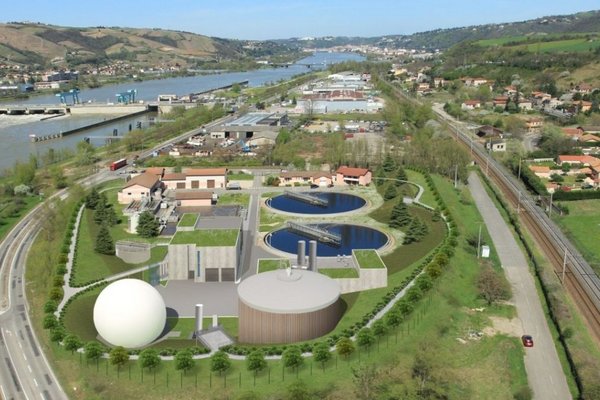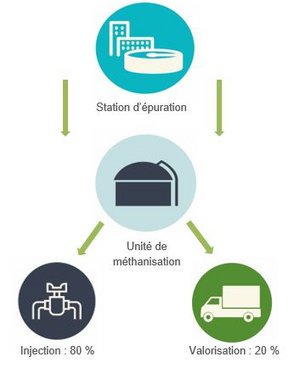
Develop and promote circular economy in medium-sized cities
The GREENCYCLE project aims to develop and promote circular economy in medium-sized cities. The implementation of the project focused on the following goals:
- the definition of circular economy strategies in the partner cities (see the list below),
- the setting up of regional skills to support circular economy projects,
- the development of tools such as a knowledge base, a toolbox and a digital marketplace.

A toolbox for the implementation of circular economy in the territories
During the project’s first phase, a toolbox was created in order to help local authorities to develop circular economy projects. It is available online on the regional platform for circular economy, ECLAIRA, and offers questionnaires and methodological guides than can be downloaded. These documents help interested municipalities to start their projects (identification of key players and issues), to develop an action plan and to evaluate their circular economy policies. The tools are classified by theme (energy, mobility, waste, construction, etc.), by type and by project stages (diagnosis, strategy, action plan, design, assessment).
They have been tested under circular economy projects conducted by the local authorities that were partners in the project: Vienne Condrieu Agglomération in France, the City of Freiburg in Germany, the Municipality of Trento in Italy, the City of Vorau in Austria and the City of Maribor in Slovenia.
A local loop related to biomethane
In Auvergne-Rhône-Alpes, AURA-EE and Vienne Condrieu Agglomération focused, at the level of the urban area, on projects aimed at producing and enhancing the value of biomethane, in various forms.
A service station supplied with gas produced by the Vienne Condrieu Agglomération wastewater treatment plant

The reflection carried out under the GREENCYCLE project allowed to identify a local loop to be developed around the use of the biomethane produced by the Reventin-Vaugris wastewater treatment plant.
In order to "close the loop", an NGV service station is to be built to supply, as of 2020, three buses and two gas-powered garbage trucks belonging to the municipality. The objective is that 20% of the biomethane produced to be transformed into bioNGV fuel.
A regional network based on agricultural biogas projects
The strategy of Vienne Condrieu Agglomération is to link the territory with agricultural biogas projects, combined with circular economy, on the same model as the one set up in Reventin-Vaugris: using waste from agriculture to produce energy and connecting these initiatives with the bioNGV production, in order to supply the service stations.
The development of renewable energy production operations should allow the urban area to achieve the energy neutrality objectives by 2050.
Video of the pilot project in Vienne Condrieu Agglomération
[Updated: May 2020]


Imprimer